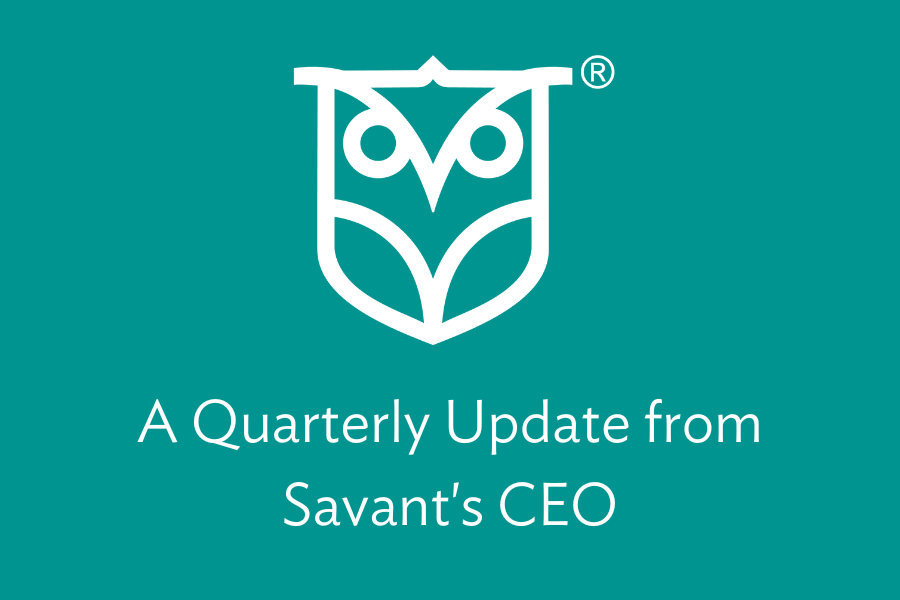Inflation, Interest Rates, and Recession: Key Economic Conversations in 2023

As we start the second half of this year, it can be helpful to reflect on where we are and how we got here. While we continue to emerge from a global pandemic, we also grapple with more recent trends like remote work, increased digitalization, and the growing prevalence of artificial intelligence.
Despite these beginnings, an economic cycle defined by more than a decade of low interest rates and financial stimulus seems to be ending. The new reality for investors is likely more tied to company fundamentals and rewarding quality businesses than it has been in recent history.
Similarly, your life may be transitioning as well. Moving, changing jobs, retiring, or dealing with unexpected health challenges can serve as an opportunity to reset the journey for many of us. These opportunities and obstacles can change the way we evaluate many aspects of our lives, including our financial planning and investment decisions.
The following are our observations about the economy and major asset classes over the past quarter and first half of the year:
Economy
Inflation, interest rates, and a long-anticipated recession that has yet to materialize have been the centerpieces of economic conversation so far in 2023. Inflation has steadily fallen throughout the first half of the year which gave the Fed reason to pause their interest rate hikes in June. Whether the next move is up or down is now the topic du jour.
Of course, we don’t know what will happen in the second half of 2023. So far, inflation has come down without unemployment spiking or economic activity falling off a cliff, a promising sign that we may not need a seismic event to reset the economy.
Those factors have reduced the probability of a recession in 2023 according to economic prognosticators, but such predictions should always be taken with a grain of salt.
Stocks
The stock market continued to climb in the second quarter. Global stocks (MSCI All Country World IMI Index) rose 5.9% which was largely fueled by U.S. markets. U.S. large-cap stocks (S&P 500 Index) gained 8.7% to outpace almost every other asset class. U.S. small stocks (Russell 2000 Index) rose 5.2% to deliver solid returns of their own. Meanwhile, international large stocks (MSCI EAFE Index) and emerging market stocks (MSCI Emerging Markets Index) were up to a lesser degree, gaining 3.0% and 0.9% respectively.
Bonds
The bond market ended the second quarter modestly lower. U.S. intermediate-term bonds (Bloomberg U.S. Aggregate Bond Index) were down 0.8% for the quarter but are still positive year-to-date. International bonds (JPM GBI Global Ex U.S. Index) managed to squeeze out a minimal gain, up 0.1%, while TIPS (Bloomberg Global Inflation Linked U.S. TIPS Index) fell 1.4%.
Although last year was one of the worst in history for the bond market, we have now arrived at a time when bonds offer compelling yields and total return potential. It can be difficult to forget the pain of the recent past, but we remain firm in our belief that bonds are one of the key building blocks of diversified portfolios.
Alternatives
Alternatives continued to provide valuable diversification for stock and bond investors. Reinsurance (SwissRe Global Cat Bond Index) posted another great quarter, gaining 9.4% to now put its year-to-date gain at 18%. Trend Following (Credit Suisse Managed Futures Liquid Index) rose 3.4%, and Direct Lending (Cliffwater Direct Lending Index) also posted positive returns, finishing up 3.2%. Meanwhile, Event Driven (IQ Hedge Event-Driven Index) added 2.1%, and Real Assets (DJ Brookfield Gbl Infrastructure Index) barely edged out a gain of 0.3%.
Sources: Morningstar Direct, Federal Reserve, Bureau of Labor Statistics, JP Morgan Asset Management. Indices are unmanaged, do not reflect fees and expenses, and are not available as direct investments. Past performance may not be indicative of future results.

